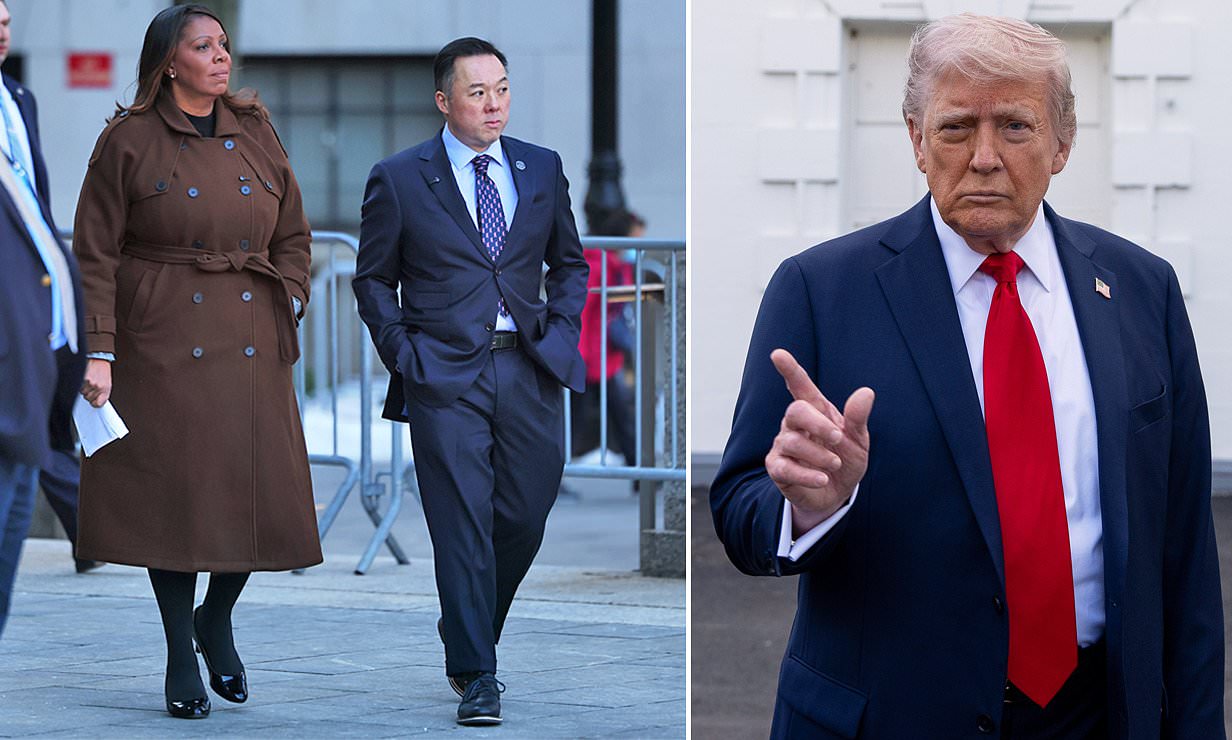Twelve states filed lawsuits against the Trump administration in the U.S. Court of International Trade on Wednesday, aiming to halt their tariff policy. They argue that this policy is illegal and has caused significant disruption to the American economy.
Prosecutors from Oregon,
Arizona
,
Colorado
,
Connecticut
,
Delaware
,
Illinois
,
Maine
,
Minnesota
,
Nevada
,
New Mexico
, New York and Vermont contend that the measure implemented by President
Donald Trump
has been at the mercy of his whims rather than governed by the proper exercise of legal authority.
This contradicted the president’s assertion that he had the authority to unilaterally enforce the tariffs through the International Emergency Economic Powers Act, pointing out that “‘The Constitution grants to Congress, not the President, the ‘power to levy and collect taxes, duties, imposts, and excises.'”
According to the lawsuit, the president can activate the International Emergency Economic Powers Act solely when an emergency poses an ‘unusual and extraordinary threat’ originating internationally — a condition that is absent in this particular situation.
By asserting his power to enforce substantial and constantly fluctuating duties on products of his choosing into the United States, citing any reason he deems fit as grounds for declaring an emergency, the President has disrupted the constitutional framework and created turmoil within the U.S. economy.
the suit says.
The states participating in the lawsuit are now requesting that the Court of International Trade rule Trump’s tariffs as unlawful and prohibit governmental agencies along with their officials from implementing these measures.
The Trump administration has not yet addressed the lawsuit.
But in a statement, New York Attorney General Letitia James – a staunch critic of the commander-in-chief – noted that he ‘promised that he would lower prices and ease the cost of living, but these illegal tariffs will have the exact opposite effect on American families.
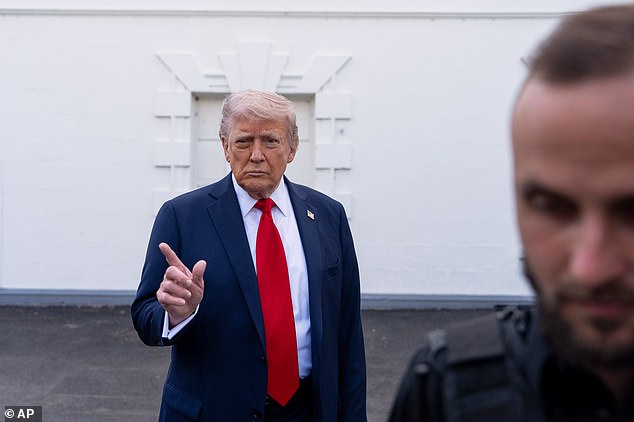
‘His tariffs are unlawful and if not stopped, they will lead to more inflation, unemployment and economic damage.
Arizona Attorney General Kris Mayes similarly labeled Trump’s tariff plan as ‘insane.’
She stated that not only was it economically irresponsible, but it was also against the law.
‘Mayes stated that Arizona can’t bear the burden of President Trump’s substantial tax hike.’
according to CNBC
arguing that: “Regardless of what the White House asserts, tariffs are a form of taxation that will ultimately be borne by Arizona consumers.”
The Connecticut Attorney General William Tong also contended that ‘President Trump’s unlawful and disordered tariffs represent a significant tax burden on Connecticut residents and have proven detrimental to local businesses and employment opportunities.’
The lawsuit filed on Wednesday is the third attempt to prevent Trump’s extensive tariffs from being implemented.
Last week, Democratic Governor Gavin Newsom of California filed a lawsuit against the Trump administration in the U.S. District Court for the Northern District of California. The suit was regarding the tariff policies, with Newsom stating that California could suffer significant financial losses amounting to billions of dollars due to being the nation’s top importing state.
His legal team also contended that Trump had no authority to activate the International Emergency Economic Powers Act since there wasn’t an actual emergency at hand.
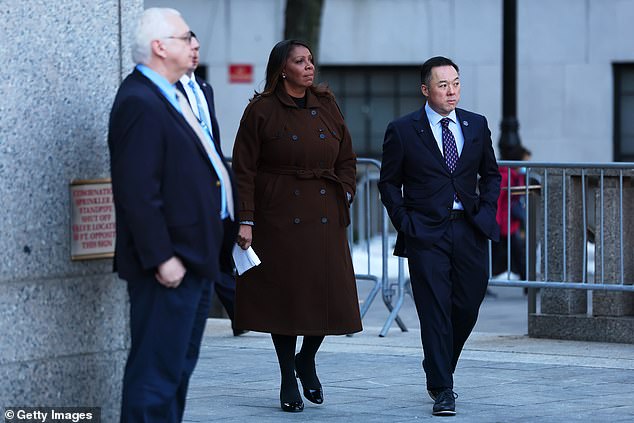
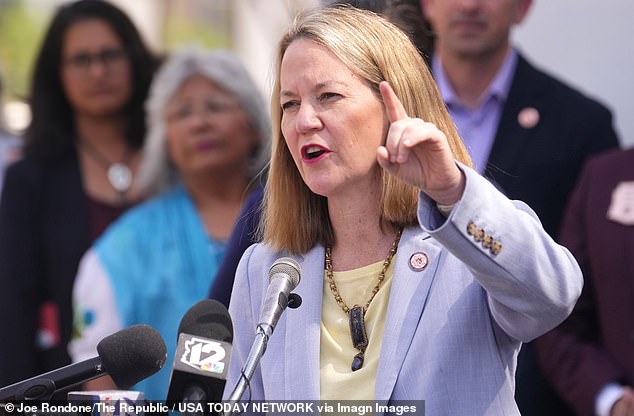
The White House spokesman Kush Desai reacted to Newsom’s legal action, stating that the Trump administration remains dedicated to tackling this nationwide crisis. He emphasized that they intend to use all available means—including imposing tariffs and engaging in diplomatic talks—to support American industries and ensure their workforce does not get left behind.
On April 14, a cohort of five business executives filed a lawsuit against the Trump administration, arguing that the anticipated substantial effects were poised to inflict significant harm on the worldwide economy.
according to Barron’s.
However, on Tuesday, a trio of judges from the Court of International Trade rejected a request made by the plaintiffs in that case for a temporary restraining order aimed at halting the tariffs until the conclusion of the legal proceedings.
Earlier this month, the president unveiled his worldwide tariff strategy at the White House’s Rose Garden and referred to it as ‘Freedom Day.’
For approximately one week afterward, his team remained steadfast on implementing the tariffs.
committing fully to the president’s strategy regardless of the economic or political outcomes
, despite the worldwide stock market decline.
However, the president ultimately declared last week that the tariffs
would be suspended for 90 days
, and on Wednesday he does this
vowed to lower tariffs totaling 145 percent on goods from China.
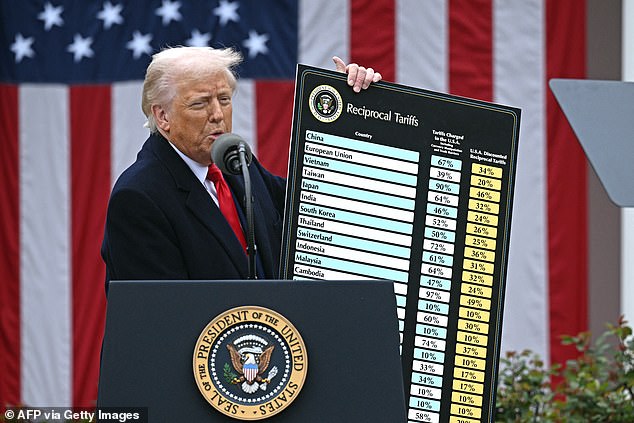
”It’s going to be fair,’ Trump said of a potential deal with the Asian nation.
‘Everybody wants to be a part of what we’re doing. They know that they can’t get away with it any longer, but they’re still going to do fine, and we’re going to have a country that you can be proud of,’ Trump said.
Previously, he stated that the present tariffs on Chinese products are “quite high but they won’t remain so…No, they will decrease significantly. However, they won’t reach zero,” he explained.
This indicated that the trade war would not end anytime soon—and that negotiations would persist. On Wednesday, White House Press Secretary Karoline Leavitt stated that 18 nations had presented proposals during the trade discussions. This figure matched what she reported on Tuesday, with no agreements having been announced yet.
Read more

